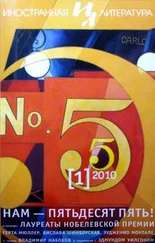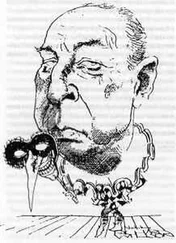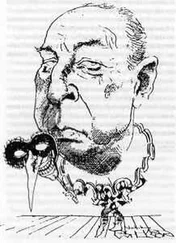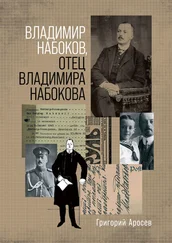Владимир Набоков - Vladimir Nabokov Pnin
Здесь есть возможность читать онлайн «Владимир Набоков - Vladimir Nabokov Pnin» весь текст электронной книги совершенно бесплатно (целиком полную версию без сокращений). В некоторых случаях можно слушать аудио, скачать через торрент в формате fb2 и присутствует краткое содержание. Жанр: Классическая проза, на английском языке. Описание произведения, (предисловие) а так же отзывы посетителей доступны на портале библиотеки ЛибКат.
- Название:Vladimir Nabokov Pnin
- Автор:
- Жанр:
- Год:неизвестен
- ISBN:нет данных
- Рейтинг книги:4 / 5. Голосов: 2
-
Избранное:Добавить в избранное
- Отзывы:
-
Ваша оценка:
- 80
- 1
- 2
- 3
- 4
- 5
Vladimir Nabokov Pnin: краткое содержание, описание и аннотация
Предлагаем к чтению аннотацию, описание, краткое содержание или предисловие (зависит от того, что написал сам автор книги «Vladimir Nabokov Pnin»). Если вы не нашли необходимую информацию о книге — напишите в комментариях, мы постараемся отыскать её.
Vladimir Nabokov Pnin — читать онлайн бесплатно полную книгу (весь текст) целиком
Ниже представлен текст книги, разбитый по страницам. Система сохранения места последней прочитанной страницы, позволяет с удобством читать онлайн бесплатно книгу «Vladimir Nabokov Pnin», без необходимости каждый раз заново искать на чём Вы остановились. Поставьте закладку, и сможете в любой момент перейти на страницу, на которой закончили чтение.
Интервал:
Закладка:
All of which does not alter the fact that Pnin was on the wrong train.
How should we diagnose his sad case? Pnin, it should be particularly stressed, was anything but the type of that good-natured German platitude of last century, der zerstreute Professor. On the contrary, he was perhaps too wary, too persistently on the look-out for diabolical pitfalls, too painfully on the alert lest his erratic surroundings (unpredictable America) inveigle him into some bit of preposterous oversight. It was the world that was absent-minded and it was Pnin whose business it was to set it straight. His life was a constant war with insensate objects that fell apart, or attacked him, or refused to function, or viciously got themselves lost as soon as they entered the sphere of his existence. He was inept with his hands to a rare degree; but because he could manufacture in a twinkle a one-note mouth-organ out a pea pod, make a flat pebble skip ten times on the surface of a pond, shadowgraph with his knuckles a rabbit (complete with blinking eye), and perform a number of other tame tricks that Russians have up their sleeves, he believed himself endowed with considerable manual and mechanical skill. On gadgets he doted with a kind of dazed, superstitious delight. Electric devices enchanted him. Plastics swept him off his feet. He had a deep admiration for the zipper. But the devoutly plugged-in clock would make nonsense of his mornings after a storm in the middle of the night had paralysed the local power station. The frame of his spectacles would snap in mid bridge, leaving him with two identical pieces, which he would vaguely attempt to unite, in the hope, perhaps, of some organic marvel of restoration coming to the rescue. The zipper a gentleman depends on most would come loose in his puzzled hand at some nightmare moment of haste and despair.
And he still did not know that he was on the wrong train.
A special danger area in Pnin's case was the English language. Except for such not very helpful odds and ends as 'the rest is silence', 'nevermore', 'week-end', 'who's who', and a few ordinary words like' eat', 'street', 'fountain pen', 'gangster', 'Charleston', 'marginal utility', he had had no English at all at the time he left France for the States. Stubbornly he sat down to the task of learning the language of Fenimore Cooper, Edgar Poe, Edison, and thirty-one Presidents. In 1941, at the end of one year of study, he was proficient enough to use glibly terms like 'wishful thinking' and 'okey-dokey'. By 1942 he was able to interrupt his narration with the phrase, 'To make a long story short'. By the time Truman entered his second term, Pnin could handle practically any topic: but otherwise progress seemed to have stopped despite all his efforts, and by 1950 his English was still full of flaws. That autumn he supplemented his Russian courses by delivering a weekly lecture in a so-called symposium ('Wingless Europe: A Survey of Contemporary Continental Culture') directed by Dr Hagen. All our friend's lectures, including sundry ones he gave out of town, were edited by one of the younger members of the German Department. The procedure was somewhat complicated. Professor Pnin laboriously translated his own Russian verbal flow, teeming with idiomatic proverbs, into patchy English. This was revised by young Miller. Then Dr Hagen's secretary, a Miss Eisenbohr, typed it out. Then Pnin deleted the passages he could not understand. Then he read it to his weekly audience. He was utterly helpless without the prepared text, nor could he use the ancient system of dissimulating his infirmity by moving his eyes up and down--snapping up an eyeful of words, reeling them off to his audience, and drawing out the end of the sentence while diving for the next. Pnin's worried eye would be bound to lose its bearings. Therefore he preferred reading his lectures, his gaze glued to his text, in a slow, monotonous baritone that seemed to climb one of those interminable flights of stairs used by people who dread elevators.
The conductor, a grey-headed fatherly person with steel spectacles placed rather low on his simple, functional nose and a bit of soiled adhesive tape on his thumb, had now only three coaches to deal with before reaching the last one, where Pnin rode.
Pnin in the meantime had yielded to the satisfaction of a special Pninian craving. He was in a Pninian quandary. Among other articles indispensable for a Pninian overnight stay in a strange town, such as shoe trees, apples, dictionaries, and so on, his Gladstone bag contained a relatively new black suit he planned to wear that night for the lecture ('Are the Russian People Communist?') before the Cremona ladies. It also contained next Monday's symposium lecture ('Don Quixote and Faust'), which he intended to study the next day, on his way back to Waindell, and a paper by the graduate student, Betty Bliss ('Dostoyevsky and Gestalt Psychology'), that he had to read for Dr Hagen, who was her main director of cerebration. The quandary was as follows: If he kept the Cremona manuscript--a sheaf of typewriter-size pages, carefully folded down the centre--on his person, in the security of his body warmth, the chances were, theoretically, that he would forget to transfer it from the coat he was wearing to the one he would wear. On the other hand, if he placed the lecture in the pocket of the suit in the bag now, he would, he knew, be tortured by the possibility of his luggage being stolen. On the third hand (these mental states sprout additional forelimbs all the time), he carried in the inside pocket of his present coat a precious wallet with two ten-dollar bills, the newspaper clipping of a letter he had written, with my help, to the New York Times in 1945 anent the Yalta conference, and his certificate of naturalization; and it was physically possible to pull out the wallet, if needed, in such a way as fatally to dislodge the folded lecture. During the twenty minutes he had been on the train, our friend had already opened his bag twice to play with his various papers. When the conductor reached the car, diligent Pnin was perusing with difficulty Betty's last effort, which began, 'When we consider the mental climate wherein we all live, we cannot but notice--'
Читать дальшеИнтервал:
Закладка:
Похожие книги на «Vladimir Nabokov Pnin»
Представляем Вашему вниманию похожие книги на «Vladimir Nabokov Pnin» списком для выбора. Мы отобрали схожую по названию и смыслу литературу в надежде предоставить читателям больше вариантов отыскать новые, интересные, ещё непрочитанные произведения.
Обсуждение, отзывы о книге «Vladimir Nabokov Pnin» и просто собственные мнения читателей. Оставьте ваши комментарии, напишите, что Вы думаете о произведении, его смысле или главных героях. Укажите что конкретно понравилось, а что нет, и почему Вы так считаете.










